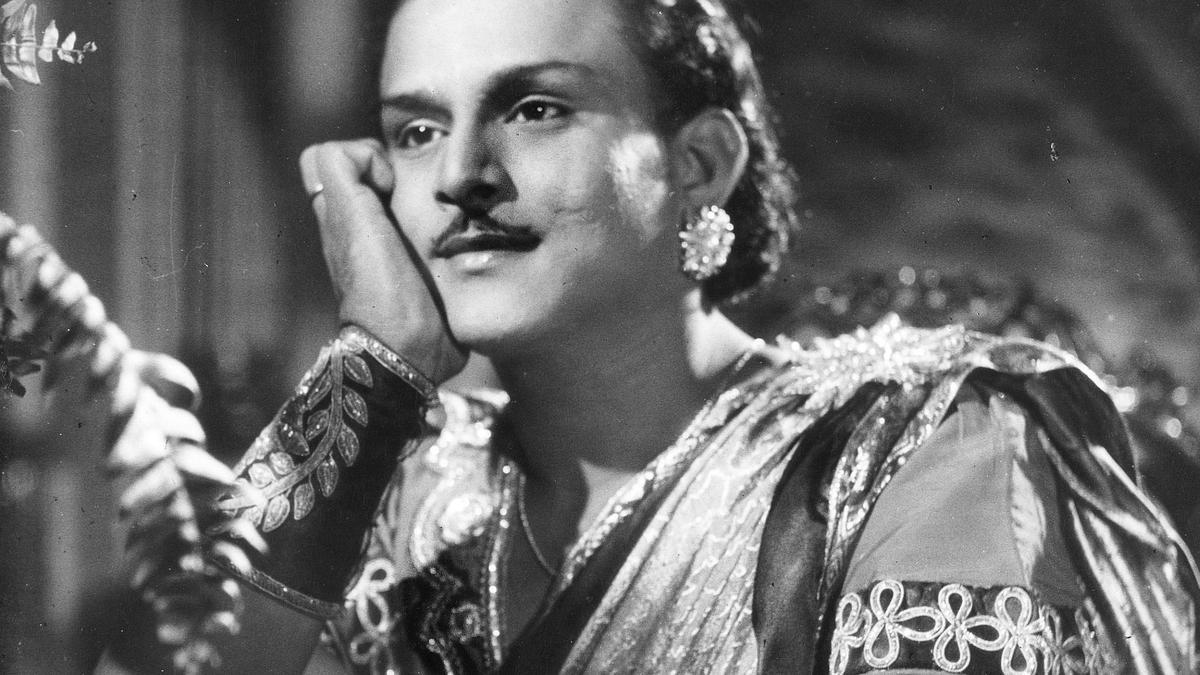
As we commemorate the centenary year of Thenkarai Ramakrishna Mahalingam (TRM), it’s worthwhile to journey back through time and recount the legendary rise of this iconic figure in Tamil cinema. TRM’s foray into the world of movies began as a prodigious 14-year-old, already a singing sensation on stage. His breakout role came when A.V. Meyyappa Chettiar cast him as Krishna in the 1938 film “Nandakumar.”
This initial exposure marked the beginning of a stellar career. However, it was in 1945 when TRM truly burst onto the scene with “Sri Valli,” directed by Meyyappa Chettiar. The film was a monumental success, partly due to TRM’s soulful rendition of “Ellorayum polave,” a song popularized earlier by S.G. Kittappa, whom TRM deeply admired. Much like Kittappa, TRM sang at a sruti of anju kattai (G scale), impressing audiences with his remarkable vocal range and emotive singing.
TRM’s successive hit came in 1947 with “Naam Iruvar,” produced again by Meyyappa Chettiar. The film featured TRM as Sukumar, a role that resonated deeply with him, so much so that he named his newborn son after his character. “Naam Iruvar” showcased TRM’s versatility and further solidified his place in Tamil cinema.
The following year, TRM and Chettiar collaborated once again on “Vedala Ulagam,” or “Demon Land,” a fantasy film that enchanted both young and old alike. The movie’s comedic scenes, particularly Sarangapani’s line “Idliyaare vaanga, vayathukkulla ponga,” became household staples, recited whenever idlis were served.
TRM’s career continued to soar with numerous unforgettable moments, including his performance of Bharati’s “Senthamizh nadenum podinile” as the title song in “Naam Iruvar.” Another notable track from the movie was “Maha sugitha roopa sundari,” which struck a chord with audiences and found its way into later compositions, such as Ilaiyaraja’s “Madana moha roopa sundari” in the film “Indru Poi Naalai Vaa.”
In 1948, TRM starred in Modern Theatres’ “Adithan Kanavu,” where he sang the widely adored “Maduramaana ruchi ulladhe,” affectionately known as the “palgova” song due to its sweet, memorable melody. By this point, TRM had amassed considerable wealth and built an opulent residence named Sukumar Bhavanam.
. He owned an impressive fleet of 17 cars, often purchasing the latest models from TVS dealers, along with scale models for his son.
Despite his prosperity, TRM faced financial troubles when he ventured into film production. His fortunes turned for the better in 1958 when Kannadasan offered him the lead role in “Malaiyitta Mangai.” The script, adapted from a Sarat Chandra Chatterjee story, featured 17 songs penned by Kannadasan himself. Despite concerns that TRM had faded from the limelight, Kannadasan’s bet paid off. He compensated TRM generously, enabling him to clear his debts.
The pair created the memorable song “Sentamizh thenmozhiyaal,” inspired by Rafi’s “Muhabbat choome jinke haath” from the film “Aan.” The film, completed in just 39 days, ran for 91 days upon release. When urged to extend the run to a hundred days for prestige, Kannadasan declined, emphasizing that a film’s success should be organic. This film marked TRM’s comeback, rejuvenating his career and finances.
MGR, Karunanidhi, and other prominent personalities visited TRM’s home, reflecting his widespread influence and enduring friendships within the industry. His abode in Thenkarai became a hub for stars like Sivaji Ganesan and Jayalalithaa during film shoots nearby.
Despite opportunities to continue in cinema, TRM preferred to sing only when acting. Thus, his film roles tapered off, and he returned to Thenkarai, continuing to perform in concerts and plays. His vocal prowess was a subject of local reverence; he often tested his vocal strength by calling out to his brother, ensuring he could sing at his best.
Tragically, TRM passed away from a heart attack at the age of 53. His family, particularly his granddaughter Prabha, remembers him fondly and is commemorating his centenary with a two-day celebration in Thenkarai on June 16. TRM’s life, marked by oscillations between village serenity and cinematic glamour, was a testament to his unwavering passion for music. His legacy endures, a melodic echo through the annals of Tamil cinema.












